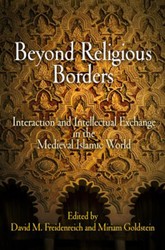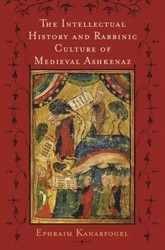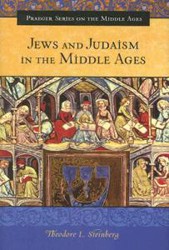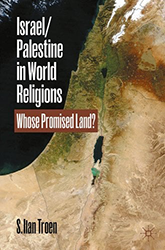Jewish thought and practice are dynamic; they change through time. As Jews interact with the dominant cultures around them, they borrow pieces of that culture, sometimes intentionally, sometimes subconsciously. In few periods in history is this more true than in the medieval era, when Jews lived under Islamic rule. After Revelation: The Rabbinic Past in the Medieval Islamic World, by Marc Herman, meticulously charts the influence of Islamic legal philosophy on key Jewish philosophers in the Middle East and Spain and makes the bold claim that these thinkers borrowed aspects of this foreign thinking in the process of formulating their own.
After Revelation is narrow in its scope. Rather than try to pinpoint all moments of cultural borrowing between Jews and Muslims, Herman looks at one specific question: how divine are Jewish texts like the Talmud? As it happens, this question was similar to one that was being asked in the Islamic world. As with the Bible, Islam has a core text, the Quran, that is considered entirely divine. However, coupled with the Quran they also have Hadith literature, which are sayings and stories from Muhammad and his companions. Like the Talmud is for Jews, these texts expand the universe of law and legend that make up the religion. In the medieval period, Muslims began exploring how “divine” these sayings were. Are the extra-quranic Islamic texts revealed by Allah or are some laws the product of human logic and ingenuity? Herman charts a parallel conversation in Jewish thinking as philosophers asked how much freedom did the Rabbis of antiquity have to innovate? Or was everything in the Talmud given at Mount Sinai and the Rabbis just gathered these traditions?
Although Herman explores a number of Jewish thinkers, from Saadia Gaon to Sherira Gaon, Bahya Ibn Paquda to Maimonides, his study mainly explores two geographic areas: Baghdad and the surrounding areas of the Middle East, and Spain. He shows that the dominant Muslim ideology in medieval Baghdad in the tenth century assumed that every text, from the Quran to the most radical Hadith, was given by Allah. As such, thinkers from that era, like Saadia, matched their Muslim counterparts and downplayed the innovative hand of the Rabbis in the Talmud, highlighting the divinity of their word. Conversely, when Herman approaches the rise of Spanish Jewish scholarship a century or two later, he observes that these rabbinic voices were much more apt to conform to the Muslim scholarship of their era, which was open to the story that human hands shaped their laws. Thus, the way they tell the story, the Rabbis of Talmud took liberties to marry tradition with innovation.
The reason Herman’s approach matters is because people often tell the story of these thinkers differently. At the time when philosophers like Saadia were writing, there was a large faction of Jews called the Karaites, who rejected the Talmud in favor of their own interpretations of the Bible. In recent decades, contemporary scholarship assumed that Saadia was reacting to the Karaites when he rejected the role of innovation in the history of Jewish jurisprudence, as a way to mark his version of Judaism as authentic. Later, in Spain, when the Karaites were less of a threat to rabbinic hegemony, thinkers were able to be less polemical and see the role of the ancient Rabbis in shaping Jewish law. Herman does not reject this story entirely but adds an additional element: the Rabbis were familiar with Islamic thought and allowed themselves to be influenced by it. They incorporated the predominant worldview of Muslim thinkers and proceeded to put their own unique stamp on these musings. At the same time, he raises many important questions about how exactly we “borrow” and why proving influence between groups is so hard but also so important.
After Revelation is an important book that puts forward a bold thesis: Jews do not think in a vacuum and Jewish thought is as much a record of others’ thinking as it is our own.
Rabbi Marc Katz is the Rabbi at Temple Ner Tamid in Bloomfield, NJ. He is author of the books Yochanan’s Gamble: Judaism’s Pragmatic Approach to Life (JPS) chosen as a finalist for the PROSE award and The Heart of Loneliness: How Jewish Wisdom Can Help You Cope and Find Comfort (Turner Publishing) which was chosen as a finalist for the National Jewish Book Award.





